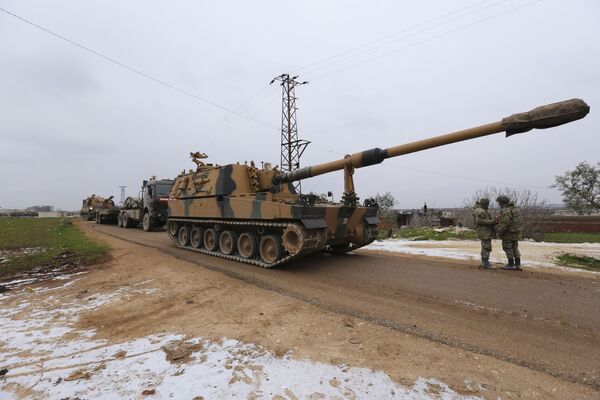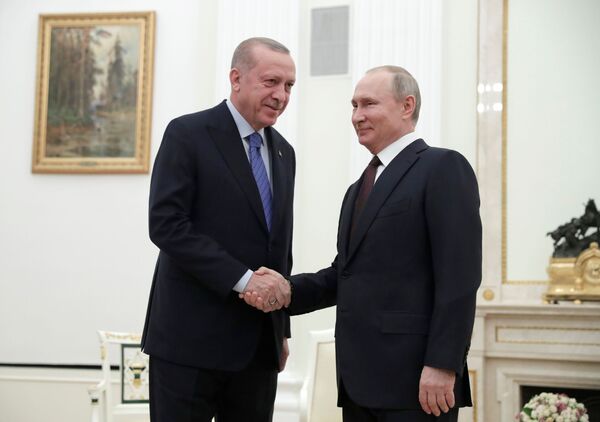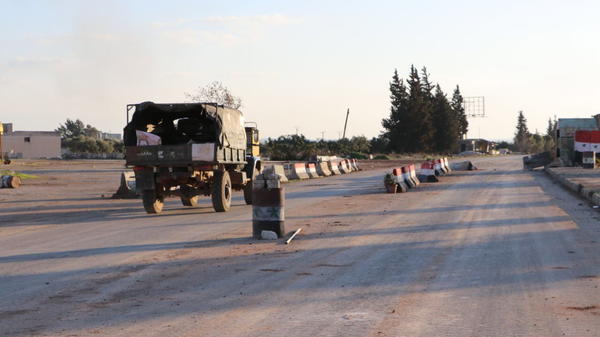If violence is ever going to cease in the Syrian province of Idlib, one of the four formally demilitarised zones, it will likely have to be Turkey spearheading this, according to US Ambassador James Jeffrey, Special Representative for Syria Engagement, cited by CBS.
"What the Turks are saying now and we support them 100% is there cannot be such ceasefires anymore. They have to be real. They have to be enduring. There has to be a line on the ground that nobody violates", he told the edition, referencing Turkey's latest offensive in Syria and the ceasefire deal inked by Ankara and Moscow.
Although Syrian President Bashar Assad previously succeeded in dealing with terrorist-held enclaves, Jeffrey, who is also the Special Envoy for the Global Coalition to Defeat Daesh*, warned that the Idlib standoff would be different.
"I do not think the Russians and Assad will win in Idlib", he started off, further explaining why:
“…the reason is the Turks cannot back down or they will have 3 million new refugees on top of the almost 4 million that they have now from Syria and they cannot physically handle it", he said.
"That's what we saw at the border (with Syria) and I do not think that there's any way possible for them to cope with that. So therefore, they're going to have to use their considerable military force to bring this offensive to a halt", Jeffrey noted, further stating the US would not be against Turkey taking the lead in the offensive.

"Our first instinct is to support and help those or willing to fight themselves in this case that is the Turks", he said, albeit noting that Turkey’s purchases of S-400s continue to be a stumbling block in Ankara-Washington ties.
"The main problem with the S-400 is it makes incompatible the use of the US F-35 fifth generation stealth fighter", Jeffrey said, reiterating Washington’s previous statements, as it rescinded Turkey's participation in the comprehensive F-35 programme.
Ceasefire Accord Bewtween Two Major Regional Players
Tensions in Syria entered a new level as Turkey launched “Operation Spring Shield” earlier this week in response to the killing of at least 34 troops in an airstrike in Idlib, when Syrian government forces anew clashed with militants. The Turkish military bombarded Syrian government positions claiming to have destroyed a slew of vehicles and “neutralised” hundreds of troops.
Russian President Vladimir Putin and Turkish President Recep Tayyip Erdogan met on 5 March in Moscow and agreed on a ceasefire in Idlib that took effect at midnight on 6 March.

Per the accord, Russia and Turkey will start joint patrols on the M4 highway in northern Syria as well as set up a 12-km security corridor for Syria’s Idlib Province to the north and to the south of the highway.
Separately, an issue in itself is the influx of refugees from Syria, something that Erdogan attempted to deal with by opening the Turkish border with the European Union, namely Greece, to let migrants and refugees cross into Europe in the wake of the Idlib escalation.
As Syrian President Bashar Assad put it, Turkey is exploiting the refugee issue to blackmail the EU as the conflict in the country reached another peak.
Since late February, the migration crisis has escalated on the Turkish-Greek border, with over 34,700 illegal border-crossing attempts having been prevented and 244 people nabbed since early Saturday, according to the Greek media.
*Daesh (also known as IS/ISIS/ISIL/Islamic State) is a terrorist group banned in Russia and other countries.


